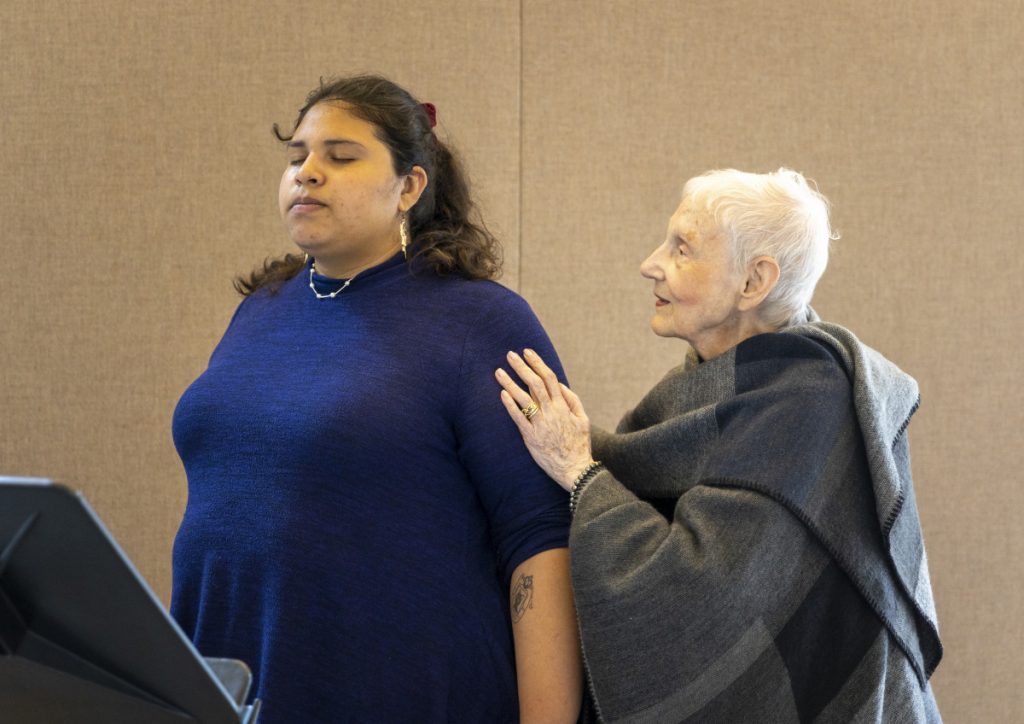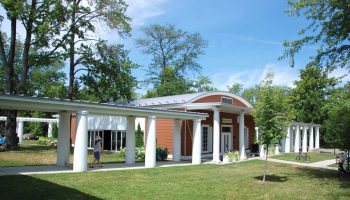Marlena Malas dislikes the term “masterclass.” She views herself as a voice teacher, not a master.
Malas teaches, not only at The Juilliard School, but at the Curtis Institute of Music and the Manhattan School of Music. This will be her 43rd nonconsecutive year of teaching at Chautauqua Institution’s Voice Program, now the Opera Conservatory. Her first class of the summer took place last Friday, but her first class this season to be open to the public is at 10 a.m. Wednesday, June 29, in McKnight Hall. Masks are required for this event.
Even though she has spent decades teaching voice, she still feels nervous before each class.
“It’s part of my DNA,” she said.
One of her worries is that she will not be able to find an area of improvement for her students.

“What if someone gets up and they’re so wonderful and I have nothing to say?” Malas said. “Then I will say, ‘You are great. Continue to do what you’re doing.’ ”
Malas’ classes often have a similar structure, no matter where she teaches. First, she shares with the students how she hates the term “masterclass,” and then they begin with warm-ups.
The students practice warming up their vocal chords through a variety of exercises, such as sticking their tongue out or even chewing on their tongue.
After that, the students sing, and Malas provides her feedback.
While these classes always come with some nerves for Malas, she said the energy at Chautauqua is overall more relaxing.
“It’s my favorite place, really,” Malas said. “There’s something here. I don’t know what it is, but I know that when we first come through the gates, I go —” she exhaled and smiled.
“I’ve made such good friends here,” Malas said. “They’ve been wonderful.”
Her children also found their own community when they visited Chautauqua with their parents. Malas remembers coming downstairs and seeing her daughter Alexis’ friends all lying on the living room floor.
Her oldest son, who is now 56, first came to Chautauqua when he was 13.
“He made good friends here that he still is friendly with,” Malas said.
From the memories, the faculty and the environment, Malas feels this is a place she can thrive.
“The place itself gives itself over to what you need to do to make sounds more beautiful, more fluid, more natural,” Malas said. “Free.”




